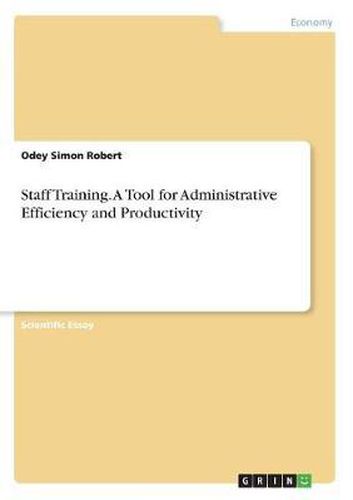Scientific Essay from the year 2017 in the subject Business economics - Personnel and Organisation, grade: A.1, language: English, abstract: Poor organisational and institutional cum administrative performance and productivity in Nigeria and most developing nations are the manifesting implications of low staff training therein. This study scholarly explores staff (re)training as a tool for administrative efficiency and productivity, highlighting the implications of poor/inconsequential staff training. The study reveals that while staff (re)training is almost absent- very low- in Nigerian public sector, the private sector has lowly appreciable performance in it, though only but a few, particularly the multi-national firms alone, do so. In public institutions, the supposed funds for staff (re)training are diverted by top management officials for personal aggrandisement, besides the low budget for it. Most private firms economise their funds, if they bid staff training, focusing more on profit maximisation and most often over load their staffs, even with duties outside their professional knowledge and competence. Consequently, there are extreme poor staff performance, administrative lapses and low organisational productivity. The paper submits that (effective) staff (re)training is an invaluable tool for administrative efficiency both in Nigeria and other parts of the globe, as obtains elsewhere and proven by the findings of this study. It recommends that both public and private firms/institutions in Nigeria should take staff training and retraining very serious in their administrative policies so as to appropriately tap from its huge potentials. It was done using survey method, qualitative approach, simple percentage, content-analysis, non/participant observation and relevant library textual materials, following its nature, scope and pursuit.





